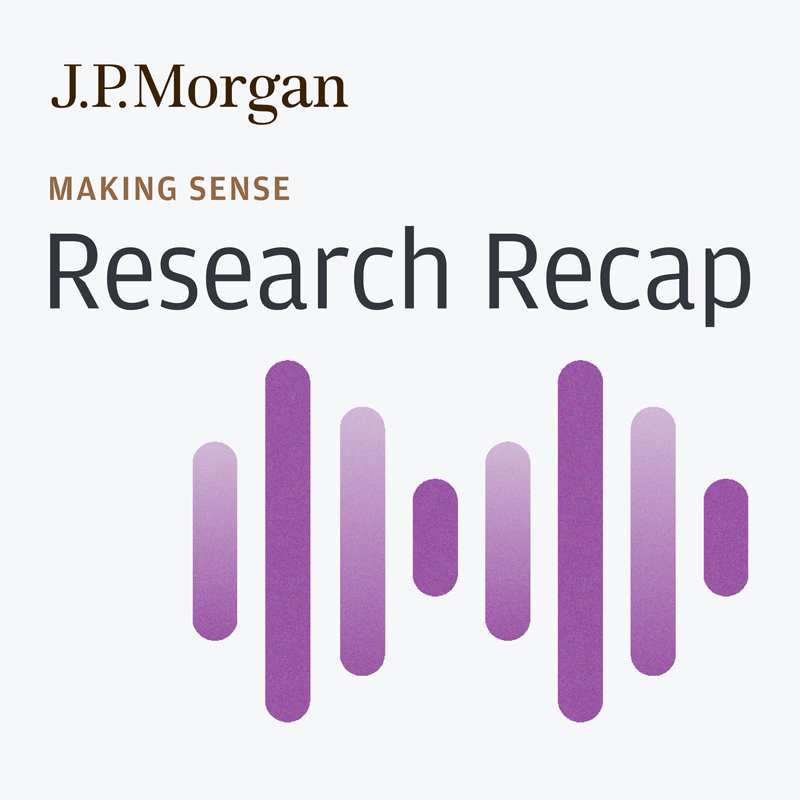
From: Research Recap
Every two weeks, each new podcast episode will bring you the latest news and views from J.P. Morgan’s award-winning Research analysts, who cover everything from sector-specific trends to the state of the global economy.

In this episode of Research Recap, chair of Global Research Joyce Chang and chief economist Bruce Kasman discuss the economic and geopolitical implications of a second Trump presidency. They discuss how Trump 2.0 could impact U.S. growth and inflation, while also considering the broader global effects, particularly around international trade and tariffs. How might these policies play out on the global stage?
This episode was recorded on November 12, 2024.
More from Research Recap
Hear additional conversations with J.P. Morgan Global Research analysts, who explore the dynamics across equity markets, the factors driving change across sectors, geopolitical events and more.
More from Making Sense
Research Recap is part of J.P. Morgan’s Commercial & Investment Bank podcast, Making Sense. In each episode, leaders from across the firm share insights on the events that are shaping companies, industries and markets around the world.
This communication is provided for information purposes only. Please visit www.jpmm.com/research/disclosures for important disclosures. JPMorgan Chase & Co. or its affiliates and/or subsidiaries (collectively, J.P. Morgan) normally make a market and trade as principal in securities, other financial products and other asset classes that may be discussed in this communication.
This communication has been prepared based upon information from sources believed to be reliable, but J.P. Morgan does not warrant its completeness or accuracy except with respect to any disclosures relative to J.P. Morgan and/or its affiliates and an analyst's involvement with any company (or security, other financial product or other asset class) that may be the subject of this communication. Any opinions and estimates constitute our judgment as of the date of this material and are subject to change without notice. Past performance is not indicative of future results. This communication is not intended as an offer or solicitation for the purchase or sale of any financial instrument. J.P. Morgan Research does not provide individually tailored investment advice. Any opinions and recommendations herein do not take into account individual circumstances, objectives, or needs and are not intended as recommendations of particular securities, financial instruments or strategies. You must make your own independent decisions regarding any securities, financial instruments or strategies mentioned or related to the information herein. Periodic updates may be provided on companies, issuers or industries based on specific developments or announcements, market conditions or any other publicly available information. However, J.P. Morgan may be restricted from updating information contained in this communication for regulatory or other reasons. This communication may not be redistributed or retransmitted, in whole or in part, or in any form or manner, without the express written consent of J.P. Morgan. Any unauthorized use or disclosure is prohibited. Receipt and review of this information constitutes your agreement not to redistribute or retransmit the contents and information contained in this communication without first obtaining express permission from an authorized officer of J.P. Morgan.
Copyright 2024, JPMorganChase & Co. All rights reserved.